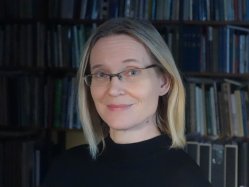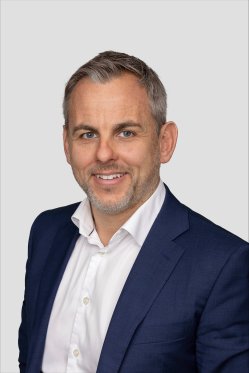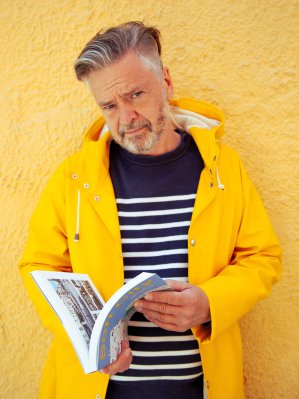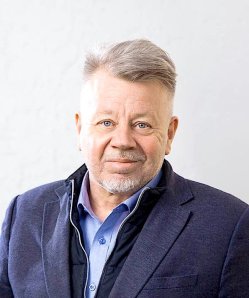Keynotes

Ranja Hautamäki
Associate Professor of Landscape Architecture, Aalto University
Urban green spaces tackling climate change
Bio:
Ranja Hautamäki is Associate Professor of Landscape Architecture at Aalto University, Finland. She is the head of research in landscape architecture laboratory and currently leads several projects focused on urban green spaces addressing societal challenges related to climate change and biodiversity loss.
Information about the presentation:
Urban green spaces provide a cost-efficient method of carbon sequestration and storage that can be used more efficiently. In addition to carbon sequestration, urban green spaces produce other vital co-benefits: alleviate urban flooding and heatwaves, and enhance biodiversity and wellbeing. How can we harness better the potential of urban green spaces as a multifunctional climate solution? This presentation provides evidence-based recommendations to integrate urban green spaces more fully into climate actions of our cities.
Urban planning and construction plays a pivotal role in establishing the foundations for greenery and its carbon storage capacities. Based on existing research, three key recommendations are proposed for safeguarding the capacity of urban green spaces in tackling climate change:
- Preserving existing vegetation and soils and their carbon stocks and co-benefits.
- Constructing new multifunctional carbon sinks that support also climate change adaptation and multispecies wellbeing.
- Enhancing the use of low-emission practices and materials, including growing media, nursery production, heavy earthworks, and maintenance practices.
The presentation offers scientific evidence behind these recommendations and provides concrete examples of how to implement them into practice.

David Jenkins
CEO
Institute of Public Works Engineering Australasia (IPWEA)
Valuing Green Infrastructure - taking a Traditional Asset Management Approach
Bio:
David Jenkins leads the Institute of Public Works Engineering Australasia (IPWEA) as Chief Executive Officer and is widely regarded as a global authority on infrastructure and asset management. He has delivered keynote addresses at the Sydney Morning Herald Infrastructure Summit and premier events hosted by the Institute of Asset Management (UK), the Institute of Municipal Engineering of South Africa, and the Government Finance Officers Association (USA). His commentary is frequently featured in the region’s most influential industry publications.
David has studied at Stanford University, holds an Executive MBA from the University of Auckland, postgraduate studies at the University of Oxford, and an undergraduate degree from the University of London. He also serves on the board of the International Federation of Municipal Engineering (IFME) and the Australasian Society of Association Executives.
As host of IPWEA’s popular Infrastructure Matters podcast, David engages international thought leaders on water, transport, and sustainable asset management—bringing fresh perspectives and practical solutions to professionals around the world.
Information about the presentation:
In the drive for financial and environmental sustainability, natural assets can be used in parallel with or to replace some traditional approaches and hard assets. In many cases, these natural solutions come with lower capital and operating costs, and they can mitigate urban heat islands and support resilience to the impacts of climate change. Natural assets also bring additional benefits; they can enhance recreational opportunities, purify air, improve soil quality and enhance habitat. The interaction of urban green infrastructure components can collectively help conserve biodiversity and restore ecological processes.
Amid discussions focused on market-based approaches to ‘valuing nature,’ the session will highlight the significant opportunity within traditional infrastructure asset management. This overlooked avenue incorporates natural assets into a traditional asset manager’s portfolio, emphasizing the opportunity and examples for the sustainable management of natural assets as a cost-effective alternative to grey or built infrastructure.
The emerging practice of natural area asset management provides a real opportunity to halt the decline and sustainably manage natural environments in urban landscapes. Taking an asset accounting approach using traditional asset management principles will help identify our natural asset inventory, the environmental services they provide, the risks of neglect, and the priorities and funding for their protection, restoration and management.
The presentation outlines the asset management process and reviews some leading examples of the application of natural area asset management in urban landscapes.
Urban landscapes, vital to the global economy, often exist outside market systems.
"Valuing Nature” delves into recognizing, protecting and managing the intrinsic value of natural assets in urban environments.

Photo by: Akiba Shiori
David Sim
Partner, Architect SAR/MSA FRIAS
Softer
Soft Urban Future
Bio:
With some 25 translations to date, the book “Soft City” has established David Sim as a thought-leader in urban livability and sustainability planning.
David started his architecture studies in his native Scotland but after hearing Jan Gehl’s lectures he moved to Scandinavia to complete his education. After a distinguished career teaching architecture at Lund University in Sweden, where he received the student-nominated “the teacher of the year” prize, he spent 17 years at the renowned Gehl urban planning practice, most notably as Creative Director, seeing it grow from four people in an attic to a world brand with offices in Copenhagen, New York and San Francisco.
A well-respected practitioner, David Sim has an impressive portfolio, personally leading master plans, urban strategies and design work across the globe, from the Highlands of Scotland to the lakes of Patagonia, from suburban Melbourne to downtown Tokyo, from finding new ways to build IKEA stores to rebuilding Christchurch after the devastating 2011 earthquake.
Based in Sweden, David Sim now works for his own independent consultancy company, making cities, towns, suburbs and villages softer.
Information about the presentation:
David Sim's optimistic vision of livable - and lovable - cities asks us to think smaller, slower, lower and simpler, to deliver density and diversity at a human scale.

Jarmo Suominen
Vice Dean
Shanghai International Institute of Design and Innovation
Livability from Ecosystems — the City as a Service Platform
Bio:
Jarmo Suominen is a recognized academic and expert in service-oriented architecture, urban ecosystems, and environmental design, with a career spanning academia, innovation, and industry. In his architectural practice, Jarmo has earned over 20 prizes in international architectural and urban planning competitions, highlighting his expertise in creative and sustainable design.
Jarmo’s academic career includes over decades of leadership and innovation. He has worked at the Massachusetts Institute of Technology (MIT) since 2000 and is the Director of the MIT-Tongji City Science Lab in Shanghai. He has been a professor at Aalto University’s Department of Architecture since 2002 to 2022 and has held positions at Tongji University since 2012, where he is Vice Dean at the International Institute of Design and Innovation.
Jarmo is the co-founder of Spacent Ltd, where he applies platform economy principles to optimize resource networks for corporate and institutional users. He introduced the first service-based urban platform solution for institutional occupiers in 2016, which evolved into Spacent’s advanced technology-driven ecosystem in 2019, now supporting nearly 400 locations across Europe.
His current work positions AI as a moderator and facilitator in urban development—connecting public and private actors, services, data, and everyday practices into actionable platforms—aimed at building more livable cities
Jarmo’s contributions to international collaboration and innovation have earned him significant recognition, including being named a High-End Foreign Expert by China’s Foreign Experts Bureau and receiving the prestigious Magnolia Award in 2022.
Information about the presentation:
New technologies enable service platforms where public and private services and systems connect into a flexible ecosystem offering. The same platform can generate new services, enhance existing ones, and direct resources to where impact is greatest—acting as a rapidly updating “urban operating system.”
This talk shows how to grow urban vitality and attractiveness with a new mindset—improving accessibility, reducing waste, and strengthening operational capacity. Concrete examples include School as a Service (education delivered as a networked service rather than just a building), workplace/service platforms, and area-development cases in Finland, the United States, and China.
I will also outline how AI can serve as a mediator—making options comparable, revealing impacts in an understandable way, accelerating decisions, and forging connections that assemble networks and communities—ultimately boosting the livability of the city.
